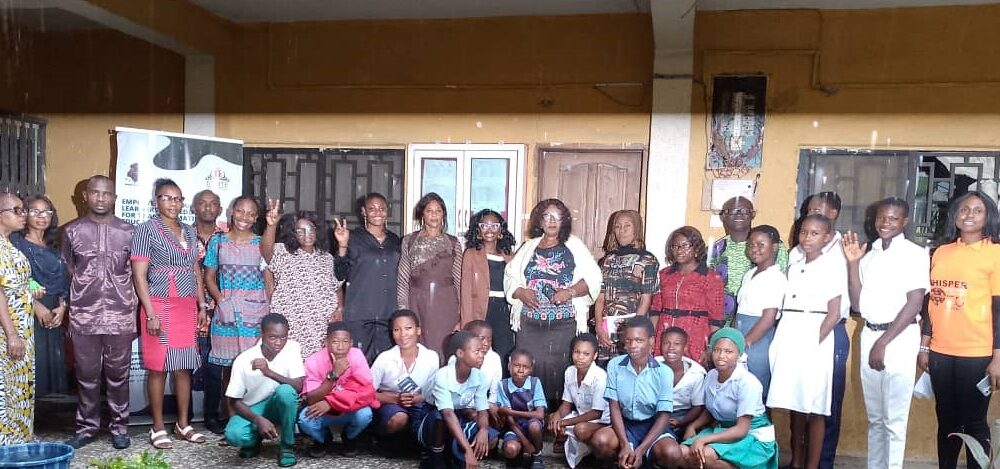On July 21st, 2025, Whisper for Humanity, a Not-for-Profit, met with the Imo State Secondary Education Management Board (SEMB) to propose a bold idea: reimagine education to be more creative, inclusive, and in tune with the times. At the heart of this proposal is their new project, Community Education for Loyal Indicators, a campaign designed to transform classroom experiences across public secondary schools in Imo State and beyond.
Lucy Onyechere, Program Officer at Whisper for Humanity, described the initiative as one that seeks to reintroduce art, music, drama, and play into learning, an approach long overlooked in many Nigerian public schools. According to her, the rise of artificial intelligence and technological innovation has changed how children learn and interact with the world. “We must recognize that times have changed. AI is reshaping how knowledge is created and shared. Our children need more than cramming they need to explore, create, and be excited to learn,” she said.
Data supports her argument. According to a 2023 UNESCO report, over 70% of Nigerian children aged 10 cannot read or understand a simple sentence. The World Bank categorizes Nigeria as facing a learning crisis students are in school, but many are not learning.
Imo State, while relatively educationally advanced, is not exempt. Classrooms are crowded, the curriculum outdated, and teaching methods heavily dependent on rote learning. A recent survey conducted by Whisper for Humanity across 11 pilot schools, involving 40 teachers and students, highlighted the same frustrations, lack of engagement, uninspiring teaching methods, and a learning environment that leaves little room for curiosity or creativity.
In response, the organisation developed a position paper titled “Empowering Educators and Young Learners in Imo State,” which outlines practical and urgent recommendations. These include the establishment of designated play stations in every school, the introduction of creative learning spaces, and the adoption of playful, student-centered teaching methods. They also called for the increased employment of non-teaching staff such as guidance counselors, lab technicians, and support educators who can enrich the overall learning experience. Importantly, the paper was co-developed by teachers and students themselves making it a bottom-up approach grounded in lived realities, not theories.
While the challenges are enormous, the stakes are higher. The National Bureau of Statistics reports that only one in four public secondary schools in Nigeria has a functional science lab, and fewer than 10% have digital learning tools. Nationwide, over 10.5 million Nigerian children are currently out of school. Many drop out not because they dislike school, but because school fails to inspire or support them.
Speaking at the meeting, the Executive Secretary of SEMB, Dr. Augustina Azubike, expressed strong support for the initiative. “Education is our business, and we are open to innovations that improve the lives of our learners. What Whisper for Humanity has proposed speaks to the future we envision,” she said.
Other high-level officials from the Ministry of Education were present, including the Director of Planning and Research, the Director of School Services, and the Director of Finance and Administration, all pledging their commitment to enhancing the quality of education in Imo State.
This engagement is not only the beginning. Whisper for Humanity is also replicating the project in Delta, Ebonyi, and Cross River States, as well as in other African countries.
Their goal is to spark a continental shift toward a new model of education, one where creativity is encouraged, digital skills are fostered, and every child feels safe and inspired to learn.
The message is clear: creativity is not a luxury in education, it is a necessity. As Nigeria grapples with poor learning outcomes and outdated systems, the call to transform education has never been more urgent. If Imo State responds with the same energy and vision demonstrated by Whisper for Humanity, it could become a model for others across the country.
After all, when students are excited to learn, teachers are empowered to teach, and communities are involved in the process, education can truly become the tool for national transformation it was always meant to be.





